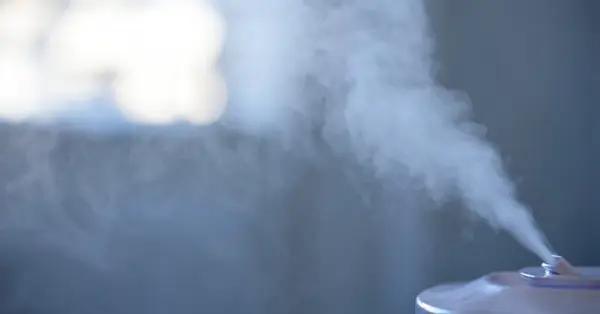Humidifier water can cause pneumonia if left unattended
Humidifiers are selling well as a countermeasure against the new coronavirus. According to the Japan Electrical Manufacturers' Association, from April to November 2020, 749,000 humidifiers were shipped to consumer electronics retailers. Compared to the same period of the previous year, the number has approximately doubled (according to the Voluntary Statistical Survey of Consumer Electrical Appliances).
A spokesperson for Loft, a household goods specialty store that sells about 100 types of humidifiers at times, talks about their sales as follows.
“Sales of humidifiers at all Loft stores in October last year increased by 40% compared to the same month of the previous year. It's an "ultrasonic" humidifier.
Humidifiers are roughly divided into three types, ultrasonic type, heating type, and vaporization type, depending on the humidification method.
The ultrasonic type, which has been growing in sales in recent years, has a wide variety of attractive designs, such as a rounded shape that fits in with the interior and an LED lamp. Another popular point is that many small ones are sold and the low price that can be purchased for a few thousand yen. Even in the best-selling online sales ranking, the stylish ultrasonic type occupies the top.
However, if this "ultrasonic humidifier" is used incorrectly, it can cause serious respiratory problems.
"If you use the water in the humidifier tank for many days without replacing it, bacteria will grow in the water. The bacteria can spread into the air and cause 'humidifier pneumonia'. There is
This is what Dr. Kunio Yano, Assistant Director of Hamamatsu Medical Center and Director of the Department of Infectious Diseases, specializes in infectious diseases. With sales of humidifiers increasing this winter, there is concern that pneumonia caused by humidifiers may increase.
"Humidifier pneumonia is a pneumonia caused by inhaling mold and bacteria that grow inside a humidifier. Bacterial pneumonia that affects people with weakened immune systems, and allergic pneumonia that affects even healthy people. Bacterial pneumonia develops when people with weakened immune systems, such as the elderly, breathe in bacteria such as Legionella bacteria that have grown in leftover water. "
In 2018, at a facility for the elderly in Oita Prefecture, three men in their 80s and 90s were infected with Legionella bacteria that had grown in a humidifier tank. One of them died.
"Allergic pneumonia that can affect healthy people is called 'hypersensitivity pneumonia'. By repeatedly inhaling mold that has grown in a humidifier, the lungs react with hypersensitivity, causing allergies. Every time I turn on the humidifier, I get symptoms such as coughing, fever, chills, and shortness of breath.” (Dr. Yano, same below)

Which type of humidifier do you use? A spokesperson for Loft gives the following advice on how to identify humidifiers.
"The steam emitted from the ultrasonic type and the heating type is easy to see. However, with the heating type, the steam that comes out is accompanied by heat. However, recently there are more and more "hybrid" products that combine ultrasonic and heating, so check the package or visit the manufacturer's official website. It is certain to search for the part number listed in
Then, what should households using ultrasonic systems do to prevent humidifier pneumonia? Mr. Yano taught me how to use a humidifier correctly.
"The most important thing is to change the water in the tank every day. If you change the water once a day, the growth of mold and legionella will be largely prevented. At that time, shake the inside of the tank with water. Please wash it so that no old water remains."
Consumable cartridges and water sticks need to be replaced regularly. Also, when the humidifier is not in use, it is important to remove the water from the tank, wash it, and dry it well before storing it. The cleaning method differs depending on the model, so please check the instruction manual or contact the manufacturer you purchased for details.
You can also use antibacterial goods for humidifiers or humidifiers with antibacterial tanks. However, Mr. Yano says that overconfidence is prohibited.
"In the world of infectious disease medicine, I don't trust antibacterial goods at all. It's more problematic to spray and inhale water containing enough disinfectant to kill bacteria, and inhaling it is also a problem. If the concentration is below zero, the sterilization effect cannot be expected.Also, don't think that tap water is safe because it contains chlorine.The chlorine evaporates after two days and there is almost no residue left."
What should I do if I get humidifier pneumonia?
"There are treatments, but in the case of hypersensitivity pneumonia, even if you see a doctor, you may not know that the humidifier is the cause, and you may be diagnosed as a 'hard-to-treat cold.' If you're using water without changing it, it's a good idea to mention that you're using a humidifier during your consultation."
In this season when the air is dry, Dr. Yano says that humidification is very important to prevent colds and corona.
"Humidification and keeping the mucous membranes moist is effective in preventing infectious diseases, so I strongly support using a humidifier. However, please do your daily care properly."
Let's use the humidifier correctly to prevent corona and humidifier pneumonia.
February 16, 2021 issue of "Women's Self"
